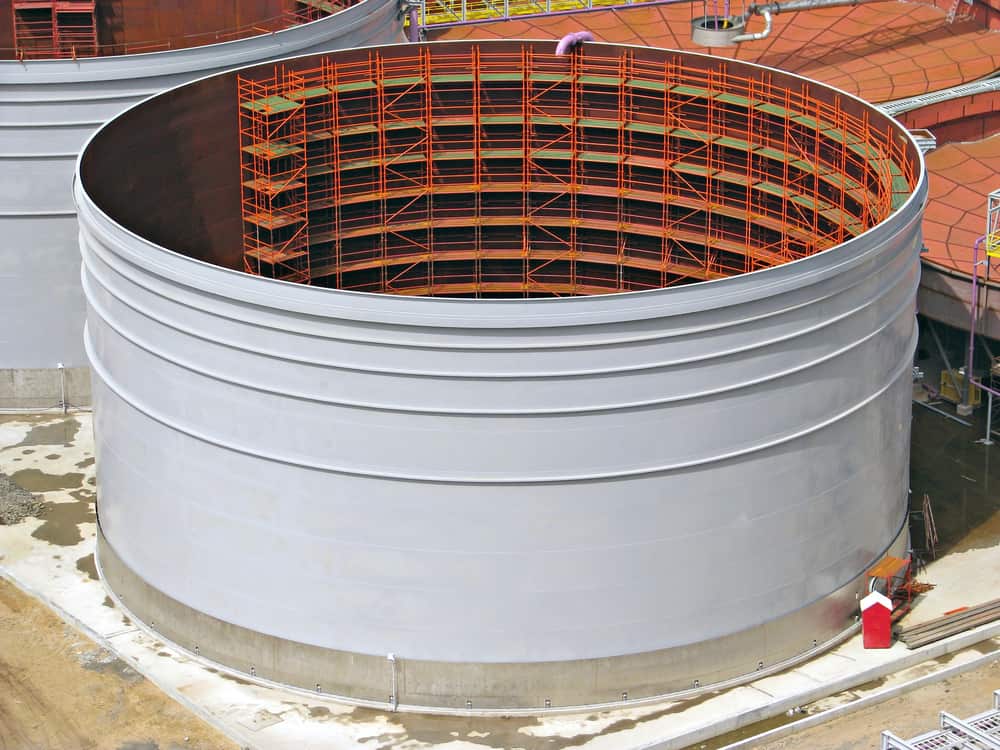Comprehensive Container Welding Examination for Industrial Safety And Security and Regulatory Conformity
Making sure industrial safety and security and regulative compliance within the realm of storage tank welding examinations is a vital aspect of keeping functional stability and mitigating prospective threats. The thorough assessment of weld top quality, material thickness, and total container condition is critical in securing against ecological threats and structural failures. By delving right into the details of thorough tank welding examinations, a much deeper understanding arises of the multifaceted approaches employed to maintain industry requirements and maintain safety procedures.
Importance of Container Welding Evaluations
Carrying out extensive and regular storage tank welding assessments is crucial in ensuring the structural honesty, security requirements, and regulative compliance of industrial storage tanks. These inspections play an essential function in recognizing any kind of potential problems or weaknesses in the bonded joints that can jeopardize the total honesty of the storage tank. By detecting these concerns early, companies can take aggressive measures to resolve them promptly, consequently stopping pricey fixings, ecological contamination, or, in the worst-case situation, catastrophic failings.
Normal container welding examinations also help organizations abide by sector laws and standards stated by authorities such as the American Petroleum Institute (API) or Occupational Safety And Security and Wellness Management (OSHA) Failure to meet these demands can lead to penalties, lawful consequences, or also the suspension of procedures. Tank Welding Inspection Service. Therefore, spending in thorough storage tank welding examinations not only safeguards the well-being of personnel and the surrounding setting but also protects the company's credibility and bottom line in the long run
Secret Parts of Weld Quality Assessment
Making sure the quality of welds involves a precise evaluation of vital parts that contribute to the architectural integrity and dependability of commercial tanks. One important element of weld high quality evaluation is the evaluation of weld infiltration. By comprehensively examining these essential parts, examiners can aid assure that welded joints meet the needed requirements for safety and security and governing conformity in commercial container construction.
Material Thickness Examination Methods
In the context of weld high quality analysis, an integral aspect to consider is the use of product density analysis methods. Precise measurement of material thickness is essential in making certain the structural integrity and safety and security of welded containers. Various non-destructive testing (NDT) approaches are employed for analyzing material density, including ultrasonic testing, radiographic screening, and magnetic bit inspection. Ultrasonic screening entails using high-frequency acoustic waves to identify material density by gauging the moment taken for the acoustic waves to travel through the product and reflect back. Radiographic screening makes use of X-rays or gamma rays to create photos showing material density. Magnetic bit inspection works for detecting surface area and near-surface flaws that may impact product density. These strategies not only aid in evaluating the thickness of materials but likewise aid in determining any kind of possible problems or suspensions that can endanger the weld quality and total stability of the storage tank structure. By using these product thickness assessment methods, industries can ensure conformity with safety requirements and laws, consequently boosting total operational imp source safety and security and integrity.
Storage Tank Condition Exam Techniques
An essential aspect in keeping the stability and safety and security of bonded tanks is the comprehensive examination of storage tank conditions with reputable examination techniques. Tank condition assessment approaches play a vital function in ensuring the architectural sturdiness and operational effectiveness of commercial tanks. Regular assessments utilizing these techniques are browse around these guys important for avoiding tragic failures and making certain the long-term reliability of bonded containers.
Advantages of Routine Examination Practices
Routine assessment techniques not only protect versus possible concerns detected during tank problem assessment techniques however also serve as positive actions in promoting the structural stability and operational efficiency of bonded storage tanks. By performing regular examinations, industrial facilities can identify any kind of indications of deterioration, fractures, leaks, or other defects in the container welds immediately. This early detection makes it possible for timely fixings or maintenance treatments, stopping small concerns from rising right into larger, a lot more expensive troubles that could endanger safety and security or lead to governing non-compliance.

Conclusion

In verdict, extensive storage tank welding inspections are important for making certain commercial safety and security and governing conformity. By performing routine assessments and assessments of weld quality, product density, and tank problem, organizations can determine potential risks and stop pricey mishaps. Implementing a proactive strategy to examination techniques can help keep the structural stability of tanks, shield the atmosphere, and ensure the safety of workers and the surrounding neighborhood.
